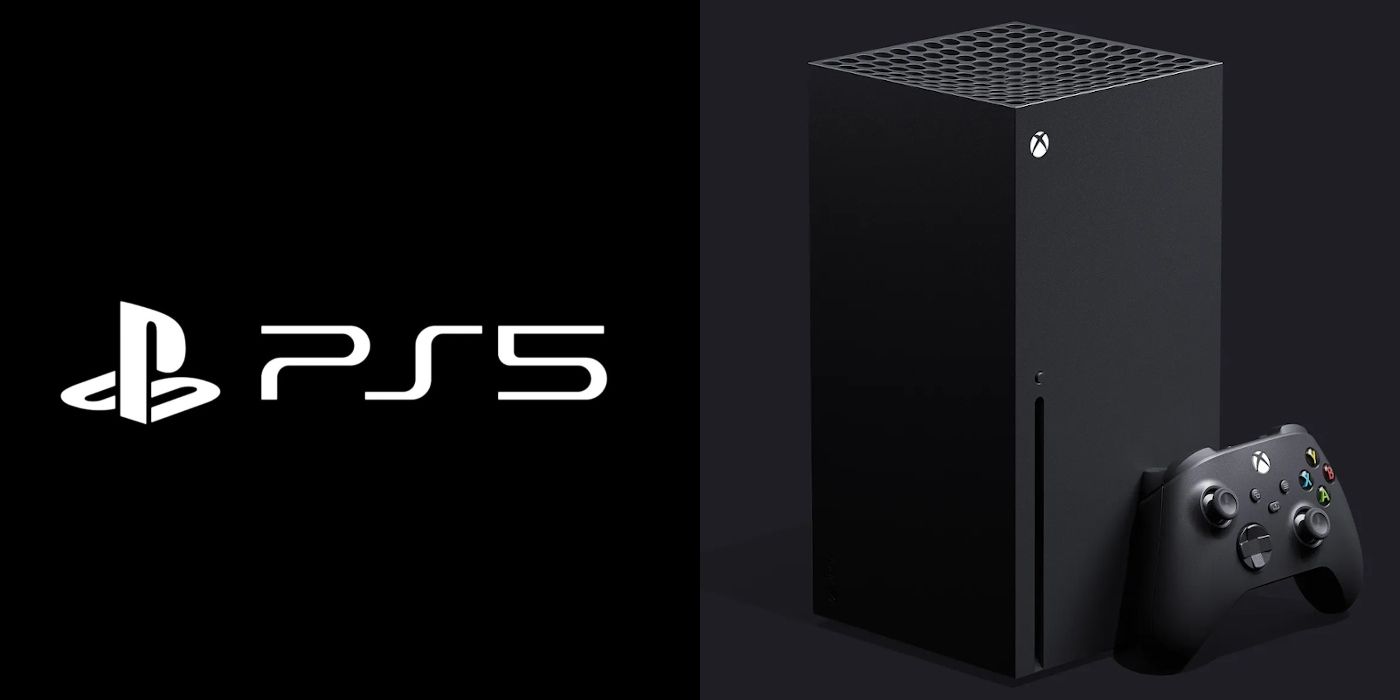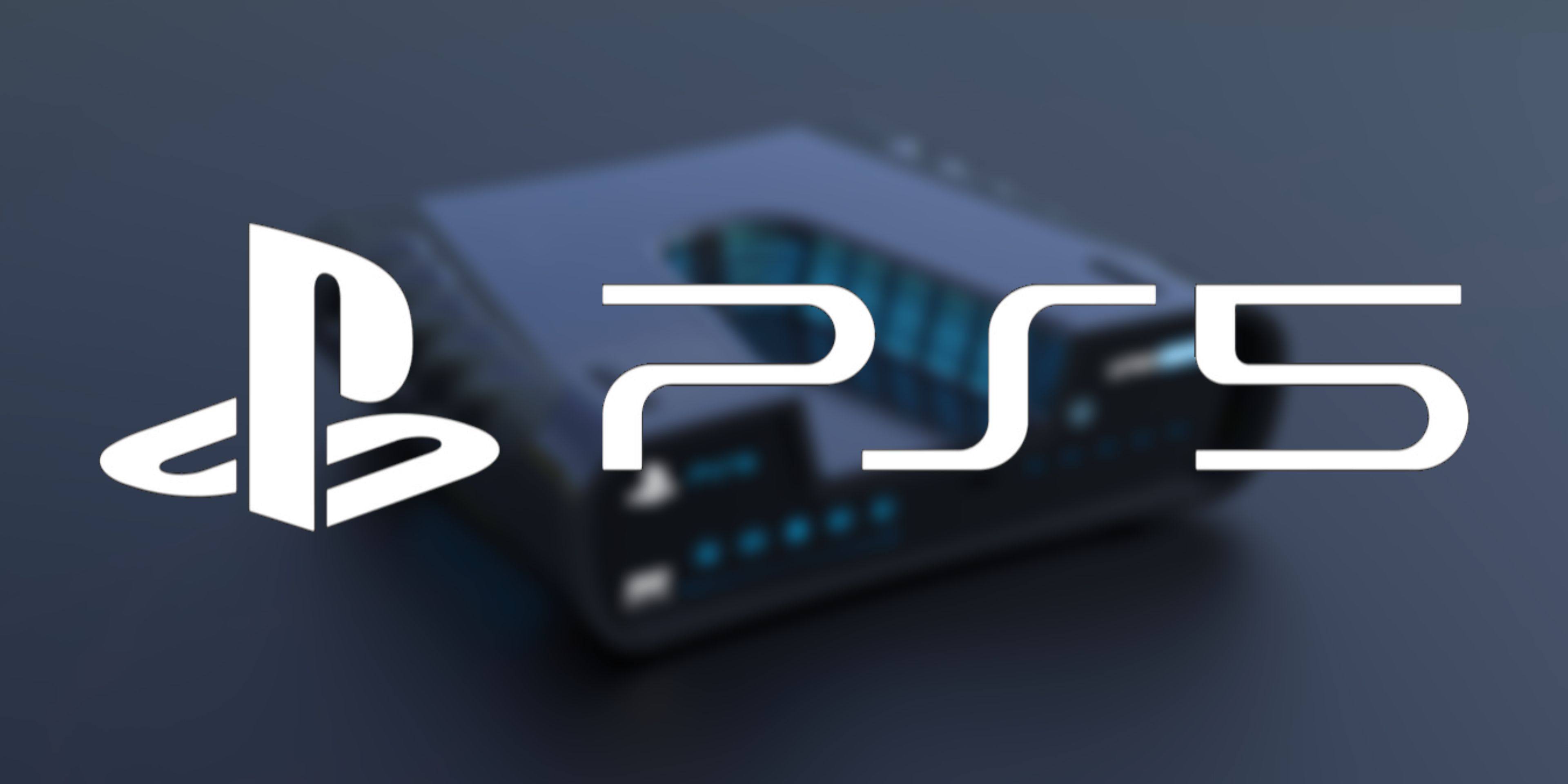As the next-gen consoles' launch draws closer, Sony and Microsoft have revealed official specs for the PlayStation 5 and Xbox Series X. Sony's PS5 specs reveal came today after a long period of mostly shyness, allowing for a true PS5 vs. Xbox Series X comparison. It turns out the Xbox Series X is the more powerful system - but it's not quite as fast as the PS5.
Microsoft revealed Project Scarlett's true name, the Xbox Series X, in a Game Awards trailer last December, followed by several breakdowns of certain aspects of its tech specifications. Microsoft has been so forward with showing off its console that its marketing even recently included a hands-on teardown and Series X Minecraft ray tracing demo by YouTuber Austin Evans, while Sony hadn't even given fans a glimpse at the console's shape.
Sony finally broke its quiet streak with today's reveal, despite the announcement apparently being ready since at least GDC 2020. This came just days after Microsoft released a comprehensive breakdown of the Xbox Series X's full specs, so gaming fans can now see how the two consoles differ in power and speed.
PlayStation 5 & Xbox Series X Specs Compared
Below is a comparison of the PS5 & Xbox Series X's tech specs, via Digital Foundry and Microsoft. The Digital Foundry PS5 breakdown doesn't include some of the specifications Microsoft provided for the Xbox Series X. These have been left blank below, but Screen Rant will fill them in as more information is revealed. Read on for a breakdown of the major differences between the two next-gen systems.
PlayStation 5 Specs
- CPU: 8x Zen 2 Cores at 3.5GHz (variable frequency)
- GPU: 10.28 TFLOPs, 36 CUs at 2.23GHz (variable frequency) Custom RDNA 2
- Die Size:
- Process:
- Memory: 16GB GDDR6/256-bit
- Memory Bandwidth: 448GB/s
- Internal Storage: Custom 825GB SSD
- I/O Throughput: 5.5GB/s (Raw), Typical 8-9GB/s (Compressed)
- Expandable Storage: NVMe SSD Slot
- External Storage: USB HDD Support
- Optical Drive: 4K UHD Blu-ray Drive
- Performance Target:
- Audio Engine: Tempest Engine
- Teraflops: 10.28 (see "GPU" above)
- Ray tracing:
- Auto Low Latency Mod:
- Dynamic Latency Input:
- Variable Refresh Rate:
- SSD: Yes (see "Internal Storage" above)
- Quick Resume:
- Backward Compatibility: PS4, PS4 Pro (via PS4 and Pro Legacy Modes)
Xbox Series X Specs
- CPU: 8x Cores @ 3.8 GHz (3.6 GHz w/ SMT) Custom Zen 2 CPU
- GPU: 12 TFLOPS, 52 CUs @ 1.825 GHz Custom RDNA 2 GPU
- Die Size: 360.45 mm2
- Process: 7nm Enhanced
- Memory: 16 GB GDDR6 w/ 320b bus
- Memory Bandwidth: 10GB @ 560 GB/s, 6GB @ 336 GB/s
- Internal Storage: 1 TB Custom NVME SSD
- I/O Throughput: 2.4 GB/s (Raw), 4.8 GB/s (Compressed, with custom hardware decompression block)
- Expandable Storage: 1 TB Expansion Card (matches internal storage exactly)
- External Storage: USB 3.2 External HDD Support
- Optical Drive: 4K UHD Blu-Ray Drive
- Performance Target: 4K @ 60 FPS, Up to 120 FPS
- Audio Engine: Unknown
- Teraflops: 12 (see "GPU" above)
- Ray tracing: Yes (Hardware Accelerated DirectX Raytracing)
- Auto Low Latency Mod: Yes
- Dynamic Latency Input: Yes
- Variable Refresh Rate: Yes (HDMI 2.1 required)
- SSD: Yes (see "Internal Storage" above)
- Quick Resume: Yes
- Backward Compatibility: Xbox One, Xbox 360, Xbox (with enhanced performance & single-purchase "Smart Delivery")
PS5 & Xbox Series X Specs Key Differences: Xbox Is More Powerful Again
Sony's PlayStation 5 isn't as powerful as the Xbox Series X, mainly owing to the Xbox's more impressive GPU and CPU. This extra power means the Series X will have a greater potential to output higher resolutions and framerates. But power doesn't equal speed. Digital Foundry's Richard Leadbetter explained in the PS5 specs breakdown that Sony believes "a smaller GPU can be a more nimble, more agile GPU."
PS5's graphics core should be able to deliver performance higher than you may expect from a TFLOPs [teraflops] number that doesn't accurately encompass the capabilities of all parts of the GPU.
Additionally, As Digital Foundry's John Linneman explained on Twitter, the PS5's SSD speed is what makes it special.
The PlayStation 5's SSD could allow it to load the data its GPU and CPU can process faster than that of the Xbox Series X. That means fast load times, few loading screens, high-speed streaming, and more. Much of how this will play out, practically, likely depends on how developers are able to utilize each system's strengths and weaknesses.
The PlayStation 5 will release sometime in the 2020 holiday period. The Xbox Series X will release sometime in the 2020 holiday period.



